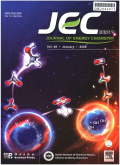- 钛学术文献服务平台 \
- 学术期刊 \
- 工业技术期刊 \
- 石油与天然气工业期刊 \
- 能源化学期刊 \
Review of vanadium-based electrode materials for rechargeable aqueous zinc ion batteries
Review of vanadium-based electrode materials for rechargeable aqueous zinc ion batteries
基本信息来源于合作网站,原文需代理用户跳转至来源网站获取
摘要:
In recent years,rechargeable aqueous zinc ion batteries (ZIBs),as emerging energy storage devices,stand out from numerous metal ion batteries.Due to the advantages of low cost,environmentally friendly characteristic and safety,ZlBs can be considered as alternatives to lithium-ion batteries (LIBs).Vanadiumbased compounds with various structures and large layer spacings are considered as suitable cathode candidates for ZIBs.In this review,the recent research advances of vanadium-based electrode materials are systematically summarized.The electrode design strategy,electrochemical performances and energy storage mechanisms are emphasized.Finally,we point out the limitation of vanadium-based materials at present and the future prospect.

推荐文章
Synthesis of zinc oxide–montmorillonite composite and its effect on the removal of aqueous lead ions
Synthesis
Characterization
Zinc oxide–montmorillonite composite
Adsorption, Pb2+ ions
Zinc isotope fractionation under vaporization processes and in aqueous solutions
Evaporation process
Zinc isotope
Kinetic isotope fractionation
Equilibrium fractionation
Zinc species in solution
Adsorption characteristics of copper ion on nanoporous silica
Nanoporous silica
Copper ion
Adsorption
Diffusion in garnet: a review
High temperature and high pressure
Diffusion
Garnet
Point defects
内容分析
关键词云
关键词热度
相关文献总数
(/次)
(/年)
引文网络
引文网络
二级参考文献 (0)
共引文献 (0)
参考文献 (0)
节点文献
引证文献 (0)
同被引文献 (0)
二级引证文献 (0)
2021(0)
- 参考文献(0)
- 二级参考文献(0)
- 引证文献(0)
- 二级引证文献(0)
引文网络交叉学科
相关学者/机构
期刊影响力
能源化学
主办单位:
中国科学院大连化学物理研究所
中国科学院成都有机化学研究所
出版周期:
双月刊
ISSN:
2095-4956
CN:
10-1287/O6
开本:
出版地:
大连市中山路457号
邮发代号:
创刊时间:
语种:
eng
出版文献量(篇)
2804
总下载数(次)
0
期刊文献
相关文献
推荐文献
- 期刊分类
- 期刊(年)
- 期刊(期)
- 期刊推荐
一般工业技术
交通运输
军事科技
冶金工业
动力工程
化学工业
原子能技术
大学学报
建筑科学
无线电电子学与电信技术
机械与仪表工业
水利工程
环境科学与安全科学
电工技术
石油与天然气工业
矿业工程
自动化技术与计算机技术
航空航天
轻工业与手工业
金属学与金属工艺
能源化学2022
能源化学2021
能源化学2020
能源化学2019
能源化学2018
能源化学2017
能源化学2016
能源化学2015
能源化学2014
能源化学2013
能源化学2012
能源化学2011
能源化学2010
能源化学2009
能源化学2008
能源化学2007
能源化学2006
能源化学2005
能源化学2004
能源化学2003
能源化学2002
能源化学2001
能源化学2021年第9期
能源化学2021年第8期
能源化学2021年第7期
能源化学2021年第6期
能源化学2021年第5期
能源化学2021年第4期
能源化学2021年第3期
能源化学2021年第2期
能源化学2021年第12期
能源化学2021年第1期

 免费查重
免费查重










